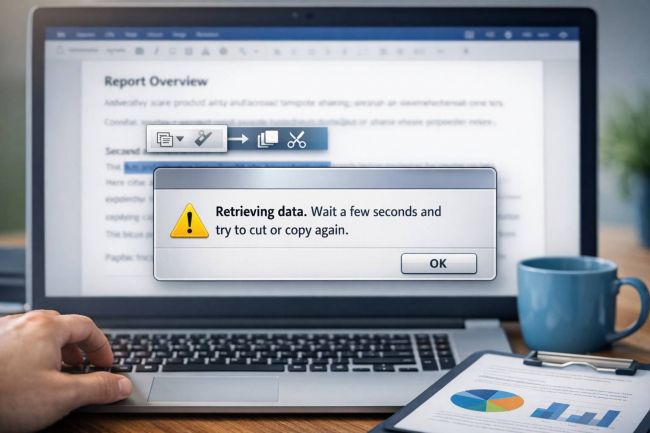Didn’t we all agree that SEO was dead? It’s a recurring question whenever there’s a major search engine algorithm update or an emerging technology shakes the internet, like the recent AI dominance. Many business enterprises have been scrambling to adjust to the changing trends, and others have fallen behind since their SEO strategies have become outdated and unable to keep up with the pace.

It’s a misconception that SEO lost relevance at any point; rather, it’s been undergoing continuous evolution, and it takes an extra level of ingenuity and discoverability to take top spots on SERPs.
In 2026, top firms are massively investing in enterprise SEO due to its significance in light of current digital trends, dynamic search engine algorithms, and ever-aggressive competition in the e-commerce landscape.
Perhaps you’ve been wondering what enterprise SEO is and why leading organizations prioritize it ahead of traditional SEO. In this article, you’ll get detailed answers to these questions and tips to upgrade your marketing strategies.
The thin line between traditional and enterprise seo
If you want to grasp what enterprise SEO is all about, picture it as your regular SEO activities, but in this case, it’s done at scale, to suit the specific needs of large-budget organizations. Platforms like Skale offer insights into how these strategies are tailored for high-growth companies.
It’s expected that when a business starts to grow, its website also expands, increasing the complexity in how it strategizes its SEO activities. While traditional SEO is designed for SMBs with limited webpages and a simpler site structure, enterprise SEO solves the unending demands of extensive, high-volume, and international websites.
Both SEO categories have similar primary objectives: to enhance your website’s visibility on SERPs when users make organic searches. The distinction lies in their scale, scope, and mode of execution.
Seven reasons why enterprise companies prioritize SEO
SEO remains a formidable marketing asset in the e-commerce landscape. Every top firm understands this. If done well, a good SEO has unmatched potential in enhancing brand visibility, driving highly relevant traffic, and building a loyal customer pipeline. Source: https://skale.so/seo/enterprise/
Read on for more comprehensive explanations as to why enterprise firms prioritize SEO in 2026.
Greater chances of visibility in organic search results

It’s 2026, and the digital market is overly saturated. This opens a window of opportunity as more customers are becoming tech-savvy. However, as new businesses surface daily, it becomes more difficult for commercial firms to shake off rivals and reach business prospects.
While paid media advertisement would have been a go-to option, its impact is time-bound, and it stops delivering results once your budget is expended. Contrarily, SEO provides sustainable strategies that ensure your website takes top spots in organic search results.
For every large enterprise, becoming an authority in its digital e-commerce niche takes precedence. As such, optimizing both branded and non-branded search terms is pivotal for success. This visibility increases brand awareness, customer touchpoints, and most importantly, larger market dominance.
In an AI-driven era where search engines like Google and Bing give priority to quality content and website authority, creating a well-thought-out enterprise SEO tactic is essential for staying competitive.
Cost-effectiveness in comparison to paid media adverts
Paid media marketing existed before the internet, but how does it compare to SEO in terms of ROI? Paid marketing, like pay-per-click and social media ads, has one major limitation—it requires you to invest continuously to maintain your site’s visibility on search engines.
Now that the digital market has become overly saturated and there’s a rising inflation in ad channels, cost-per-acquisition (CPA) has skyrocketed significantly, and enterprise firms can no longer rely on paid marketing for broad-scale marketing outreach.
SEO, however, provides a sustainable ROI, especially for enterprise firms that render large-scale services and manage product catalogs in bulk. Whether a one-time or continuous SEO effort, once a website ranks high for strong-intent keywords, it receives organic traffic nonstop and minimizes acquisition costs.
In this period of economic uncertainty, where enterprise companies have to cut their budgets low, SEO opens a pathway to benefit from economies of scale through page optimization. SEO augments monetary efforts such that optimizing a high-ranking webpage can generate thousands of leads monthly.
Harmonizing with changing buyer behavior
As most customers have become digitally savvy, their buyer journey starts from the internet. In fact, 96% of business prospects research a business online before interacting with the organization. This behavior aligns perfectly with SEO, ensuring your website provides useful answers to customer queries and guides them through every stage of the funnel.
Enterprise firms, especially MSPs and those with large, more complex website structures, use MSP SEO strategies to guide and influence consumers’ purchase decisions. For a closer look at how these strategies are executed effectively, Amped Marketing provides tailored solutions designed specifically for MSPs. Now that Google gives preferences to sites that offer educational and experience-rich content, SEO has gone beyond the period of keyword stuffing, it’s now more of a user-first approach.
Customer demands are not constant, and only enterprise firms that prioritize purpose-driven content that aligns with buyer behavior ultimately boost conversion rates, enhance customer loyalty, and retention rates.
Enhancing brand reputation and credibility
In the e-commerce landscape, trust is the language we speak.
The competition in the digital market has reached an all-time high, leaving clients overwhelmed with multiple options. Customers turn to the internet to collect information and ascertain the credibility of any brand before interaction.
When users make organic searches and your website continuously ranks high on SERPs, it emphasizes brand credibility and authority. SEO is basically for this purpose—placing keywords strategically in your content, inserting backlinks, and optimizing content to meet search engine requirements.
Investing in SEO only leads to a win-win outcome. Customers often need reassurance, and as such, they are most likely to actively engage with a website that appears consistently in their searches.
After all, the internet is filled with several misleading information and unreliable content, so a good SEO can form the basis of brand trust.
Optimizing website performance and user experience
User experience is a critical aspect of a good SEO strategy. Search engines like Google have continuously preferred sites that prioritize page experience signals and web accessibility standards. None of these has changed in 2026.
Since enterprise firms manage and operate large websites with multiple complex pages, technical SEO has become the new norm to ensure visibility and performance in SERPs. The technical aspect of a website includes page responsiveness, fast loading times, mobile friendliness, and so on.
When customers engage a website, they expect smooth and easy navigation across web pages and easily find what they’re looking for without any hassle. This experience not only helps the site rank better, but it also enhances conversion rates.
The overwhelming impact of UX on SEO has forced SEO experts to collaborate with developers and UX designers to ensure enterprise firms increase their engagement metrics and customers have a smooth sailing throughout the sales funnel.
Competitive edge in AI-driven search
If you’ve been attentive, you’d have observed how AI tools like Bing Copilot and Google Search Generative Experience are altering the search experiences in 2026—generating summaries of content and minimizing the number of clicks to conventional websites.
What impact does this have? It’s a double-edged sword. On one note, it reduces the chances of visibility on search engines however, it opens a new window of opportunity. In that case, enterprises must be intentional about creating high-quality and SEO-friendly content that AI can easily decipher.
With AI-driven search, organizations must establish themselves as an authority in the niche for them to be featured in AI-generated responses. After all, AI summaries, featured answers, and voice searches all appear at the top spot on search engines, so every SEO effort in this regard is worth the while.
Gaining data-driven insights for business innovation
A good SEO strategy does more than enhance your site’s visibility on search engines; it offers real-time data analysis, which enterprise firms can exploit to develop insights into customer search patterns, keyword trends, and performance analytics.
The data-driven insights also allow businesses to identify the inconsistencies in their marketing activities while taking proactive steps to enhance product development, sales strategy, and business initiatives.
Moreover, most SEO-based platforms have integrated business intelligence software into their workflows, paving the way for broader multi-functional analysis. In that regard, businesses that consider SEO a marketing asset can be more flexible in their operations, make better-informed decisions, and align their strategies with customer demands.
Join the SEO community
Keep in mind that SEO has a dynamic nature, and it will continue to change with search engine updates or when a new technology impacts its algorithms. If you want to stay relevant in the SEO race all the way, hire a specialist or outsource to an SEO agency.
SEO is a formidable marketing asset that can speed up the growth of your enterprise in no time. All it takes is a well-thought-out strategy and careful implementation to promote your brand awareness and business credibility in the digital market.
This article is an eye-opener to the unmatched potential of SEO in 2026. I hope you put what you’ve learnt to good use. Thanks for reading
Rilwan Kazeem is a creative writer and art lover. He has worked in social media, content marketing, and SEO for four years. He has covered topics including digital marketing, HR, emerging technologies, and their intersection with business. At his leisure, he loves to meditate and spend time with his family.
Post Comment
Recent Comments
Alan
Jul 24, 2025Great roundup, thanks! I especially liked the idea of segmenting by engagement level — I've been looking for a good way to re-engage inactive subscribers. It would be awesome if you added some example subject lines for each strategy.






Petr
Jul 29, 2025Great insights on why enterprise firms prioritize SEO in 2025! For anyone looking to boost their marketing strategy, check out these practical ideas: https://thundermarketingsolutions.com/top-21-hotel-marketing-strategy-ideas-in-2025/